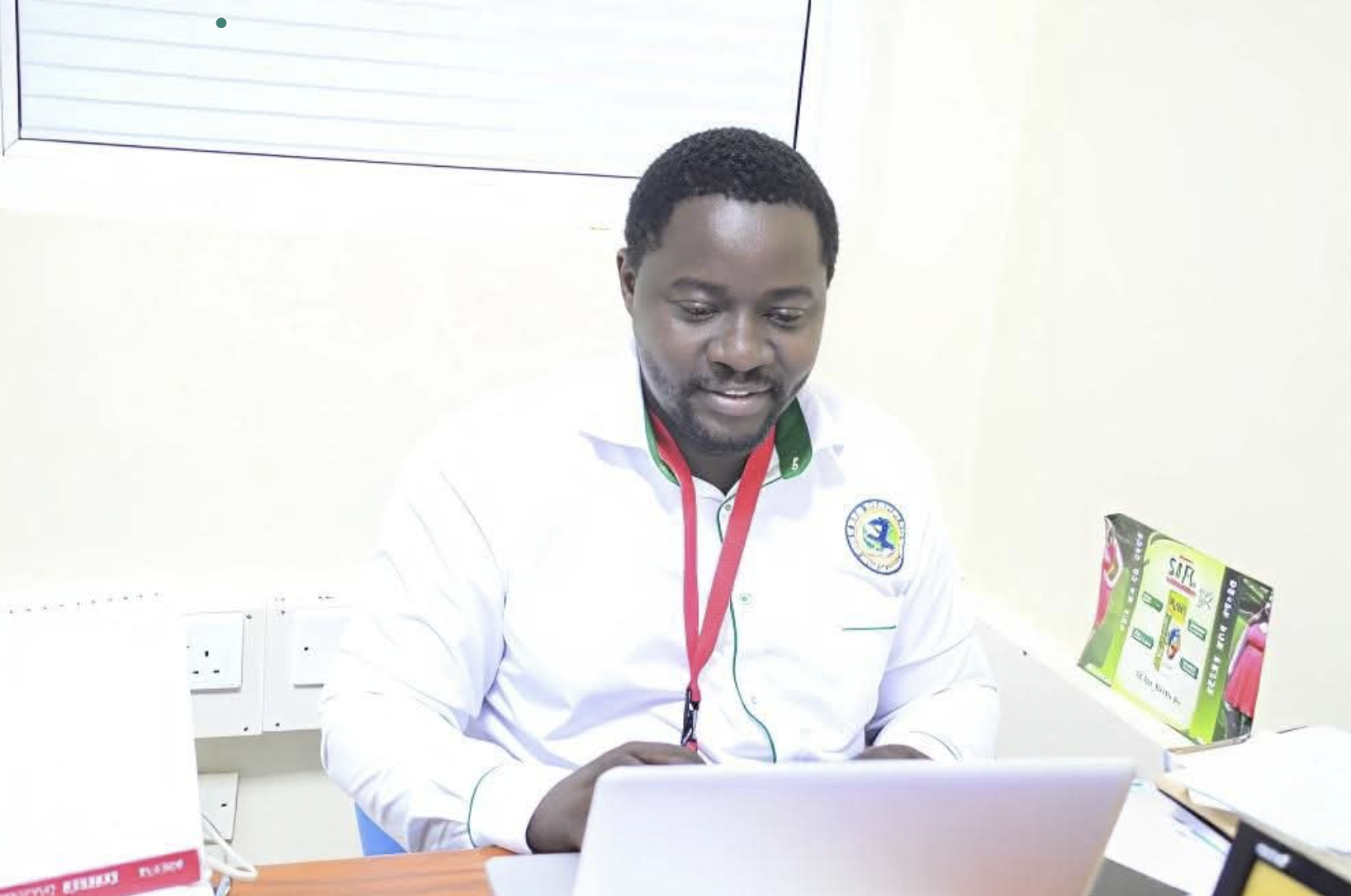 Nairobi County clinical officers in a peaceful demonstration in Nairobi on April 30, 2025. They have the highest unemployment rate of any health cadre/DOUGLAS OKIDDY
Nairobi County clinical officers in a peaceful demonstration in Nairobi on April 30, 2025. They have the highest unemployment rate of any health cadre/DOUGLAS OKIDDY
Kenya’s Clinical Officers have won a major boost after the United Kingdom last week affirmed they can work there as Physician Associates (PAs).
UK’s General Medical Council (GMC) had in January announced that Clinical Officers from Kenya and 14 other countries could register to practice as PAs, placing them alongside nurses and doctors, who have long sought better-paying jobs in Britain.
However, the migration process was suspended until the end of an ongoing independent review of the roles of physician associates (PAs) in the UK.
There was concern that UK might scrap PA roles altogether, as demanded by some top doctors.
The report of the exercise, called the Gillian Leng Review, was published on July 16. It affirmed PAs were critical in UK heath system and only recommended they should work under doctor supervision and should be renamed to physician assistants.
Health Principal Secretary Mary Muthoni confirmed Kenya will now formally request the UK to include Clinical Officers in the labour agreements that already send hundreds of Kenyan nurses to work there.
“We will continue working with line ministries and organisations to support the growth, mobility and global competitiveness of our health workforce,” she said.
“The recent acknowledgement by the UK’s General Medical Council (GMC), which allows our Clinical Officers to register and practice in the United Kingdom, is a significant step forward. It affirms the quality of our training institutions and opens up meaningful opportunities for our professionals to thrive globally.”
The Global Association of Clinical Officers and Physician Associates (GACOPA), which is led by a Kenyan, has already met Labour PS Shadrack Mwadime to discuss the way forward. They met PS Muthoni on Wednesday.
Gacopa president Austin Oduor told The Star the Ministry of Health and the Ministry of Labour confirmed they would seek an amendment to the UK-Kenya nurses MoU.
“Today's meeting with the Principal Secretary for Public Health, Mary Muthoni, and our earlier engagement with PS Labour Shadrack Mwadime have laid a clear and progressive roadmap. The Government of Kenya has committed to initiate formal inclusion of Clinical Officers into the existing bilateral MOU between Kenya and the United Kingdom, which currently accommodates nurses,” he said.
“This move reflects the country's recognition of Clinical Officers as a critical component of Kenya’s health workforce and their growing global demand.”
 Austin Oduor, President of the Global Association of Clinical Officers and Physician Associates (GACOPA).
Austin Oduor, President of the Global Association of Clinical Officers and Physician Associates (GACOPA).
The Clinical Officer profession in Kenya dates back to the colonial era when the country faced an acute shortage of doctors.
The colonial government began training mid-level health workers to perform basic medical care where no doctors were available.
Kenya formalised the role in the 1960s. But unlike nursing, which is well established and recognised worldwide, Clinical Medicine remained little known outside a handful of countries, mainly in East and Southern Africa.
Clinical Officers have since become the backbone of Kenya’s rural health system, diagnosing, treating, performing minor surgeries, and running health centres often without a doctor in sight.
Yet despite their vital role, they have faced open hostility from doctors and the health establishment.
Director General for Health Dr Patrick Amoth once called for the profession to be scrapped altogether, arguing it duplicated other medical roles.
“The number of clinical officers has increased, but they suffer unemployment. Is it prudent to continue on that path or retrace and progress their careers? The best course of action is not to make a painful situation worse,” he said in April last year.
Kenya has approximately 30,000 registered COs, according to the Clinical Officers Council. They have the highest unemployment rate of any health cadre. Amoth said close to 14,000 of them are jobless.
The clinicians fought back and even demanded the right to be called ‘Clinical Doctors’.
COs in Kenya are mainly trained through two pathways: the Diploma in Clinical Medicine (three years) and the Bachelor’s Degree in Clinical Medicine (four years), each followed by a one year internship. Degree holders can apply to study the five-year Bachelor of Medicine and Bachelor of Surgery (MBChB) to become doctors.
The UK’s door for COs was initially opened in January when the country’s National Health Service (NHS) announced plans to triple the number of PAs to plug gaps left by chronic doctor shortages.
The General Medical Council (GMC) – similar to Kenya’s Kenya Medical Practitioners and Dentists Council (KMPDC) – said it would accept foreign-trained PAs from 15 countries — including Kenya, Ghana, Zimbabwe, and South Africa — if they pass English language tests, pay a £500 (Sh 87,500) registration fee and complete further assessments.
PS Muthoni said this recognition confirmed the high quality of Kenya’s training programmes.
“Clinical Officers are central to delivering primary healthcare, especially in underserved areas, and are instrumental in achieving Universal Health Coverage. It is encouraging to see their dedication now recognised internationally,” she said.
However, the plan is being opposed in Britain. Some doctors warn that training standards in some countries (Kenya not included) are patchy.
For example, Ghana’s Medical and Dental Council recently de-accredited half of all PA training programmes over quality concerns.
UK doctors have also raised safety fears after cases of PAs being mistaken for doctors, leading to misdiagnoses. Some professional groups are now suing the GMC over what they call a lack of proper oversight.











